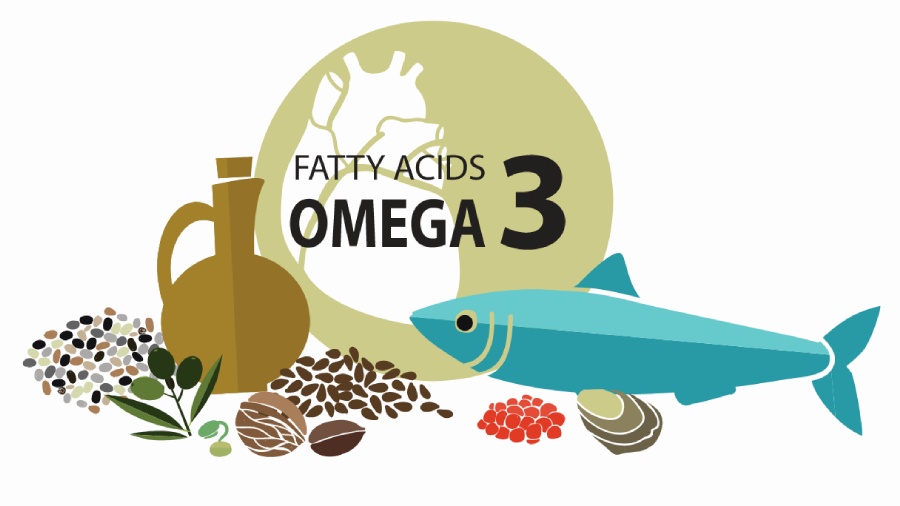Omega-3 fatty acids are widely advertised as a panacea for many illnesses. Pharmaceutical sales agents and the media push for their use during pregnancy, lactation, for children and healthy as well as ailing adults. Unfortunately, most people are not very clear about what they are.
They are essential fatty acids of many kinds. They are available from both plant and animal sources. Most of them are not made in the body or stored in sufficient quantities, so the diet has to be nutritionally adequate to provide them.
Eicosapentaenoic acid or EPA is found in fish and fish oil. It reduces blood pressure, improves circulation, and keeps the heart and brain healthy. Docosahexaenoic acid or DHA is found in high concentrations in the eye, brain, and sperm cells. It is advertised as an unproven supplement to improve sperm count and health. It is also purported to elevate mood, cognition, memory and learning. It is often added to health drinks, particularly for growing children. AminoLevulinic Acid or ALA is found in plant sources such as flax and chia seeds. It acts as a source of energy. Limited amounts can be converted in the body to EPA and DHA but not very efficiently.
Increasing Omega 3 fatty acids in the diet by eating more fish, prawns or crabs, sprinkling flax and chia seeds on the food, or taking supplements has several health benefits.
Many adults have a deranged lipid profile with high triglyceride (TGL ) levels. Adding Omega 3 fatty acids as capsules or liquid to the diet and the medications prescribed helps lower the TGL levels. It thus has the potential to prevent plaque build-up, heart attacks and stroke.
The entire human body is composed of interlinked cells. Damaged cell membranes can be repaired with a regular intake of Omega -3 fatty acids. In the skin, in particular, it prevents damage and dryness.
Fish oils amplify weight loss provided they are combined with a negative caloric balance and at least 30 minutes of exercise. As a result, weight loss is faster and more likely to be maintained.
Dietary sources of Omega 3 fatty acids are fish, crabs, prawns, walnuts, cashews, sunflower oil, soya beans, soya oil, flax and chia seeds.
The recommended dose of supplements is 250–500 mg/day. In coronary heart disease, the dose is 1,000 mg daily. If the TGL remains high despite medication, 2,000–4,000 mg daily can be added to the drugs. In pregnant and breastfeeding women, the recommended dose is 200 mg and 50–100 mg for infants and children. Most of this can be obtained from a balanced diet. Supplements of Omega 3 fatty acids can cause burping, foul-smelling belching, heartburn, indigestion, excessive gas, nausea, vomiting, diarrhoea and joint pain. It can change the smell of the sweat, so that body odour becomes offensive.
It competes with vitamin E for absorption and can lower vitamin E levels. It can lower blood pressure which is why it should not be taken with anti-hypertensive medication. It can exacerbate the anti-clotting effects of clopidogrel and aspirin. Herbs and native medicines can also react with it. People suffering from severe depressive illness, bipolar disorder or schizophrenia may have their symptoms aggravated by taking high-dose supplements.
Overdosing with this long-term reduces immunity, lowers blood pressure and thins the blood. It has to be stopped at least a week before surgery.
Omega 3 fatty acids work slowly. Their benefits become obvious, not immediately, but over months. The capsules or liquid can be taken at any convenient time of the day. If there are gastrointestinal side-effects, it can be split into two or three doses.
The writer has a family practice at Vellore and is the author of Staying Healthy in Modern India. If you have any questions on health issues please write to yourhealthgm@yahoo.co.in











